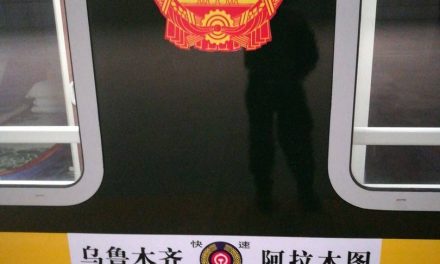Trains from Xining to Lhasa and from Lhasa to Xining run on the Qinghai – Tibet Railway, which is the first rail line to Tibet measuring 1,956 kilometers (1,213 miles). It is also the highest railway in the world. Currently, there is no high-speed service on this rail line.
Xining – Lhasa trains have running speed of 140 kph (87 mph) with the duration of 20 to 22 hours. Sleeper classes are recommended if take those trains. Hard sleeper is US$85 per ticket; soft sleeper is US$130 per ticket.
Brief Introduction
- Distance: 1,956 kilometers (1,212 miles)
- Terminals: Xining Railway Station, Lhasa Railway Station
- Duration: 20.5 – 22 hours
- Main stops: Xining, Delingha, Golmud, Naqu, Lhasa
Xining to Lhasa Train Schedules
(Updated on July 11st, 2019)
| Train Number | Departure | Arrival | Duration |
|---|---|---|---|
| Z323 | 12:26 | 09:55+1 | 21 h 29 m |
| Z917 | 14:01 | 11:20+1 | 21 h 19 m |
| Z21 | 15:21 | 12:26+1 | 21 h 5 m |
| Z265 | 19:31 | 16:10+1 | 20 h 39 m |
| Z165 | 21:27 | 19:35+1 | 22 h 8 m |
Xining to Lhasa real-time train schedules.
Lhasa to Xining Train Schedules
(Updated on July 11st, 2019)
| Train Number | Departure | Arrival | Duration |
|---|---|---|---|
| Z6802 | 09:00 | 06:43+1 | 21 h 43 m |
| Z166 | 11:30 | 08:55+1 | 21 h 25 m |
| Z266 | 12:55 | 10:20+1 | 21 h 25 m |
| Z22 | 16:15 | 13:20+1 | 21 h 5 m |
| Z224 | 18:40 | 15:20+1 | 20 h 40 m |
“+1” indicates the train arrives the next day.
The timetable above is for your reference only. To check up-to-date train schedules from Lhasa to Xining, you may use the search box at the top of this page, or click here.
Xining – Lhasa Train Seat Classes and Ticket Fares
Soft Sleeper: US$127 (860 CNY)
Hard Sleeper: US$80 (545 CNY)
Hard Seat: US$33 (224 CNY)
Facilities on Xining – Lhasa Train
Seat Classes
1. Two soft sleeper carriages, each carriage has eight private compartments. Each compartment is equipped with four berths (two upper berths and two lower berths) and a lockable door.
2. Eight hard sleeper carriages, each carriage has ten open-plan compartments. Each compartment has six berths (two upper berths, two middle berths and two lower berths). There is no door between compartments to create privacy.
3. Four hard seat carriages, each carriage has 98 hard seats.
Food Onboard
There is a dining car attached to each Xining – Lhasa train. Freshly-cooked Chinese food, boxed meals, snacks and soft drinks are provided. Only cash in Chinese yuan is accepted when ordering food on the train.
The choice of food on the train is limited, and expensive. It is recommended that you bring your own food before boarding.
Boiling water is available at the end of each carriage.
Oxygen Supply
The difference between Xining-Lhasa train and other trains is the supply of oxygen, to help passengers adjust to altitude sickness. Trains running on Qinghai – Tibet Railway have two oxygen-supply systems:
One is to supply oxygen through air-conditioning, to increase oxygen level in the train. The other system uses distributed oxygen supply method, supplying oxygen through outlet beside the seats/berths. In sleeper carriages, there are oxygen outlets beside the windows. In seat carriages, oxygen outlets are available under the seats. You can get oxygen from the outlet by asking the train conductor for an oxygen supply tube.
Toilet
Only Chinese style toilets (squat toilets) are available on Xining to Lhasa trains. Toilets on hard seat carriages are sometimes in bad condition.
Smoking Area
There is no smoking area on this train. Trains between Xining and Lhasa are completely enclosed, with different pressure from outside. Smoking is not allowed on those trains.
Xining to Lhasa By Train or By Plane
| Train | Airplane | |
|---|---|---|
| Duration | 20.5-21.5 hours | 2.5 hours |
| Ticket Price | Soft sleeper: US$127 Hard sleeper: US$80 |
Economy class: US$115-170 |
| Pros | 1. Xining to Lhasa train are cost-effective. 2. It’s better for you to adapt to the high-altitude climate as the train moves gradually towards higher. 3. Stunning window views along the way. |
1. Time-effective, save you more time for sightseeing. 2. Sometimes the discounted airfare is more competitive than soft sleeper on trains. |
| Cons | Taking a long time on the train | 1. Usually airfare is more expensive than train ticket price. 2. There is a possibility of having altitude sickness after landing. |
Related Articles
- Tibet Train
- Xi’an to Pingyao Train
- Overnight Trains in China



Recent Comments